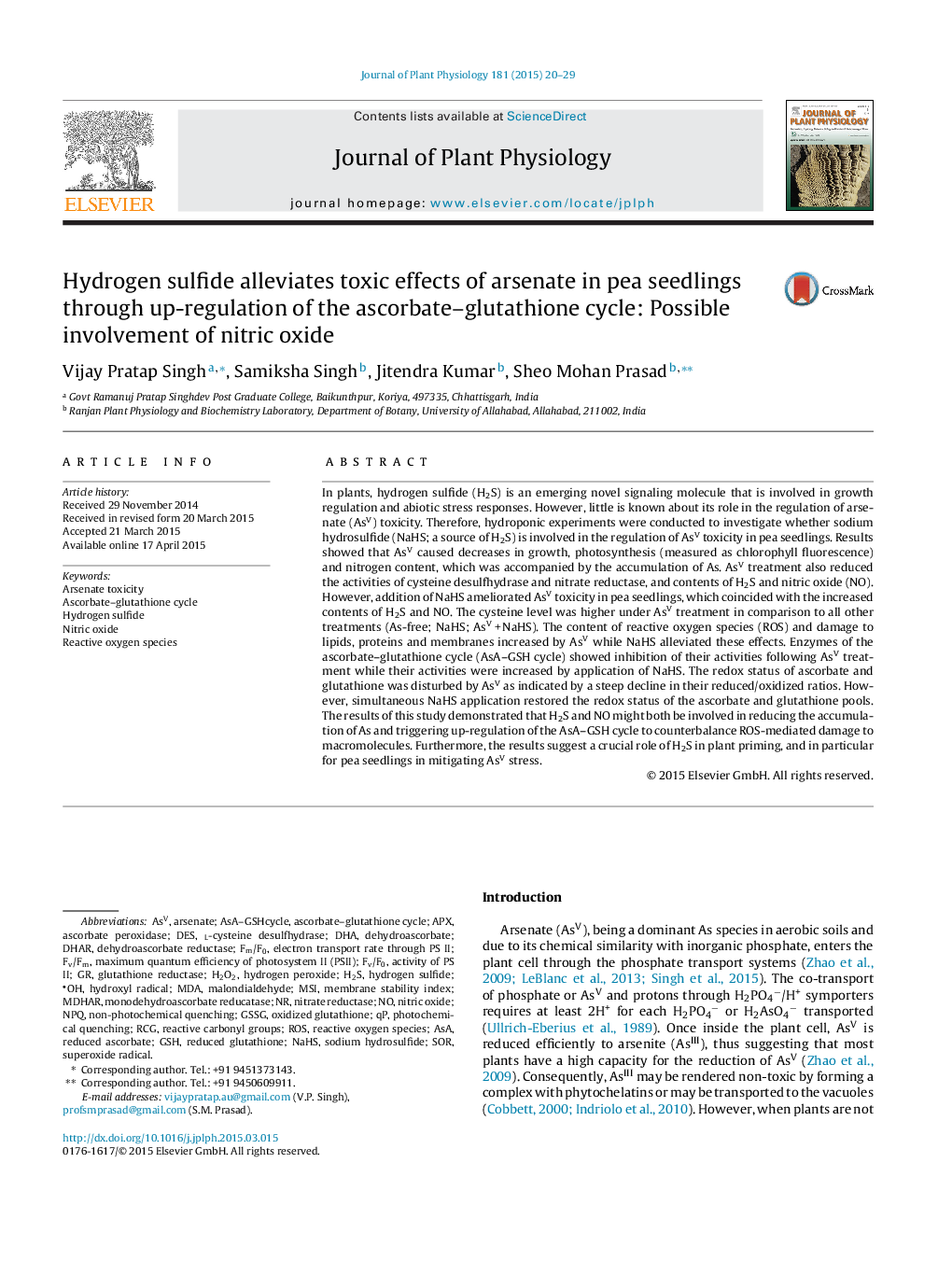| Article ID | Journal | Published Year | Pages | File Type |
|---|---|---|---|---|
| 2055602 | Journal of Plant Physiology | 2015 | 10 Pages |
In plants, hydrogen sulfide (H2S) is an emerging novel signaling molecule that is involved in growth regulation and abiotic stress responses. However, little is known about its role in the regulation of arsenate (AsV) toxicity. Therefore, hydroponic experiments were conducted to investigate whether sodium hydrosulfide (NaHS; a source of H2S) is involved in the regulation of AsV toxicity in pea seedlings. Results showed that AsV caused decreases in growth, photosynthesis (measured as chlorophyll fluorescence) and nitrogen content, which was accompanied by the accumulation of As. AsV treatment also reduced the activities of cysteine desulfhydrase and nitrate reductase, and contents of H2S and nitric oxide (NO). However, addition of NaHS ameliorated AsV toxicity in pea seedlings, which coincided with the increased contents of H2S and NO. The cysteine level was higher under AsV treatment in comparison to all other treatments (As-free; NaHS; AsV + NaHS). The content of reactive oxygen species (ROS) and damage to lipids, proteins and membranes increased by AsV while NaHS alleviated these effects. Enzymes of the ascorbate–glutathione cycle (AsA–GSH cycle) showed inhibition of their activities following AsV treatment while their activities were increased by application of NaHS. The redox status of ascorbate and glutathione was disturbed by AsV as indicated by a steep decline in their reduced/oxidized ratios. However, simultaneous NaHS application restored the redox status of the ascorbate and glutathione pools. The results of this study demonstrated that H2S and NO might both be involved in reducing the accumulation of As and triggering up-regulation of the AsA–GSH cycle to counterbalance ROS-mediated damage to macromolecules. Furthermore, the results suggest a crucial role of H2S in plant priming, and in particular for pea seedlings in mitigating AsV stress.
